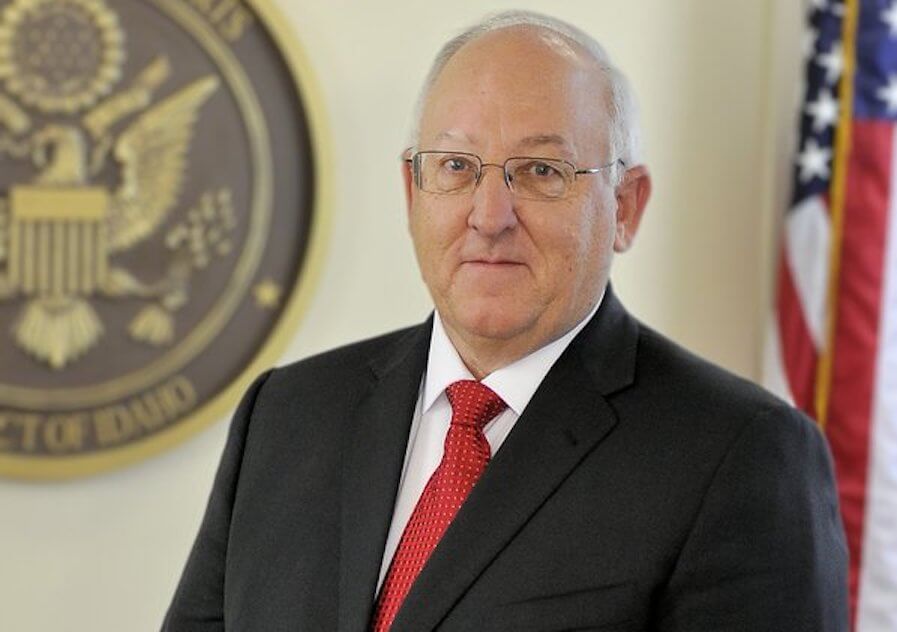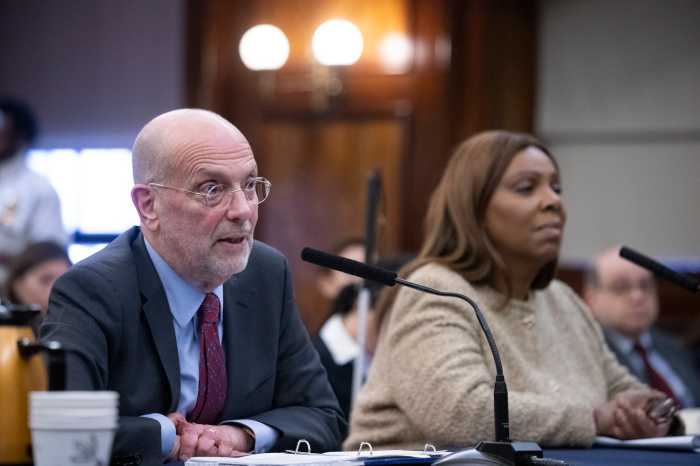Two recent federal court decisions have dealt with claims by transgender plaintiffs concerning access to school restrooms and other single-sex facilities — issues which courts have confronted for several years now.
The earliest cases tended to rule in favor trans students seeking restroom access, but more recently the increasingly conservative federal courts have taken a “conservative” approach in dealing with privacy claims raised by school officials and parents on behalf of cisgender students. In Sexuality and Gender Alliance v. Critchfield, an organization representing the concerns of transgender students attending Boise High School challenged a 2023 Idaho law that requires students to use restrooms, changing rooms, and communal showers that correspond to their “biological sex,” with similar regulations applying to overnight accommodations on school trips. The lawsuit was filed in the US District Court for Idaho, and was assigned to Chief District Judge David Nye, one of President Trump’s 2017 appointees during his first term.
The lawsuit claims that the Idaho statute is unlawful on three grounds: Equal Protection under the 14th Amendment of the US Constitution; Title IX of the federal Education Amendments Act, which bans educational institutions that receive federal funding from discriminating because of sex; and a common law right of privacy under Idaho law.
The plaintiffs filed a motion for a preliminary injunction to block enforcement of the law statewide while their case is pending. Debbie Critchfield, the state’s superintendent of public instruction, named as the lead defendant, filed a motion to dismiss the case. Judge Nye denied both motions, and the plaintiffs appealed to the Ninth Circuit Court of Appeals. While finding that the plaintiffs failed to allege facts that would make it likely they would win the case, and thus were not entitled to a preliminary injunction, Judge Nye had ruled that the state defendants were not entitled to dismissal of all claims as a matter of law, so the denial of plaintiffs’ motion would not end the case.
The Ninth Circuit upheld Judge Nye’s denial of a preliminary injunction, approving his determination that the privacy rights of cisgender students not to be put in the position of potentially exposing their bodies to transgender students in single-sex facilities was likely to succeed in justifying the law against a constitutional claim. The Ninth Circuit also affirmed Judge Nye’s conclusion that the plaintiffs were unlikely to win their Title IX claim, but on different grounds from Judge Nye.
Having failed to get their statewide injunction, the plaintiffs came back to Judge Nye with a new motion seeking a narrow injunction applicable to restrooms at Boise High School, which was scheduled to begin fall term classes on August 12. All the trans members of the Alliance attend that school.
A looming issue in the case was the possible impact of the Supreme Court’s decision in US v. Skrmetti, in which that court ruled that Tennessee’s law banning gender-affirming care for minors did not violate equal protection. However, Judge Nye observed that the Skrmetti decision was based on the Supreme Court’s determination that the Tennessee law did not discriminate based on sex or transgender status, but instead based on age and medical diagnosis, thus that ruling did not affect the question of whether a law that does discriminate based on sex or gender identity should be subjected to “heightened scrutiny” under the Court’s equal protection jurisprudence, and Ninth Circuit precedents require heightened scrutiny in cases of gender identity discrimination. Clearly, the challenged law discriminates on the basis of gender identity.
But that is not the end of the equal protection analysis. The state argues that the law is justified as a measure to ensure the safety and privacy of school-aged children. While discounting the safety argument, Judge Nye found that the restriction on access is “substantially related to the state’s legitimate interest in privacy,” so plaintiffs were unlikely to prevail on their constitutional claim.
As to Title IX, the Ninth Circuit, in affirming Judge Nye’s denial of an injunction, held that the state did not have clear notice when it accepted federal funding that this would obligate the state to allow transgender students access to multiple-user restrooms consistent with their gender identity, so the statute could not be invoked to support the students’ claim.
Plaintiffs have to show a likelihood of success on the merits to get a preliminary injunction before trial. The court also found that other factors necessary for injunctive relief were not present in this case, concluding that barring trans students from using single-sex restrooms consistent with their gender identity did not inflict “irreparable injury” because the statute requires the schools to accommodate trans students with access to single-user restrooms. Thus, Judge Nye denied the motion for a preliminary injunction.
On the same date as Judge Nye’s ruling, the US Court of Appeals for the Fourth Circuit, which has jurisdiction over cases from West Virginia, ruled in Blair v. Appomattox County School Board that a trans student could maintain an action under Title IX accusing school officials of “deliberate indifference” to the adverse treatment a trans student encountered, including while using the boys’ restrooms in Appomattox County public schools. The student’s grandmother (also his adoptive mother) is the lead plaintiff in the case, asserting a variety of federal claims, all of which Senior District Judge Norman Moon had dismissed.
In reversing the dismissal only as to the “deliberate indifference” claim, the court found that the school authorities arguably had not exerted sufficient effort to counter the difficulties experienced by S.B., as the student was identified in the opinion for the Court of Appeals by Judge Roger Gregory, who was initially nominated by President Bill Clinton toward the end of his second term and then renominated by President George W. Bush.
S.B. was identified as female at birth but suffered a variety of mental problems in middle school and by high school was identifying as male to counselors at the Appomattox County High School. Although S.B. was diagnosed with “severe gender dysphoria” during a psychiatric evaluation, this information was not shared with S.B.’s grandmother.
S.B., who was increasingly presenting as male at school, using a male name and pronouns and grooming, was told by a counselor to use the boys’ restrooms, but S.B. encountered serious harassment there and elsewhere at the hands of cisgender boys. Eventually grandma learned the truth and came around to supporting S.B.’s transition, but she blamed the school for failing to keep her informed about her child’s gender identity and criticized the school for directing S.B. to use restrooms where S.B. faced threats of violence, including sexual assault.
Although most of the legal claims asserted by S.B. and S.B.’s grandmother against the school were dismissed, the Fourth Circuit panel revived the “deliberate indifference” claim under Title IX, over a partial dissent by the panel’s most conservative member, Judge J. Harvie Wilkinson (an appointee of President Reagan), who argued that the school had made efforts to help S.B. so it should not be sued for “deliberate indifference.” The third member of the panel is a Biden appointee, Judge De Andrea Benjamin.
Complicating the situation in the courts concerning restroom access is President Trump’s executive order and mandates from the Department of Education that schools receiving federal funding not allow trans students to use restrooms consistent with their gender identity. An executive order does not have the rule of law, and there are cases on file challenging the Education Department’s attempts to pressure schools to adopt the president’s preferred restroom policy. Plaintiff successes in lower level courts are being appealed by the Trump Administration, which aims to bring cases to the Supreme Court as quickly as possible.



































